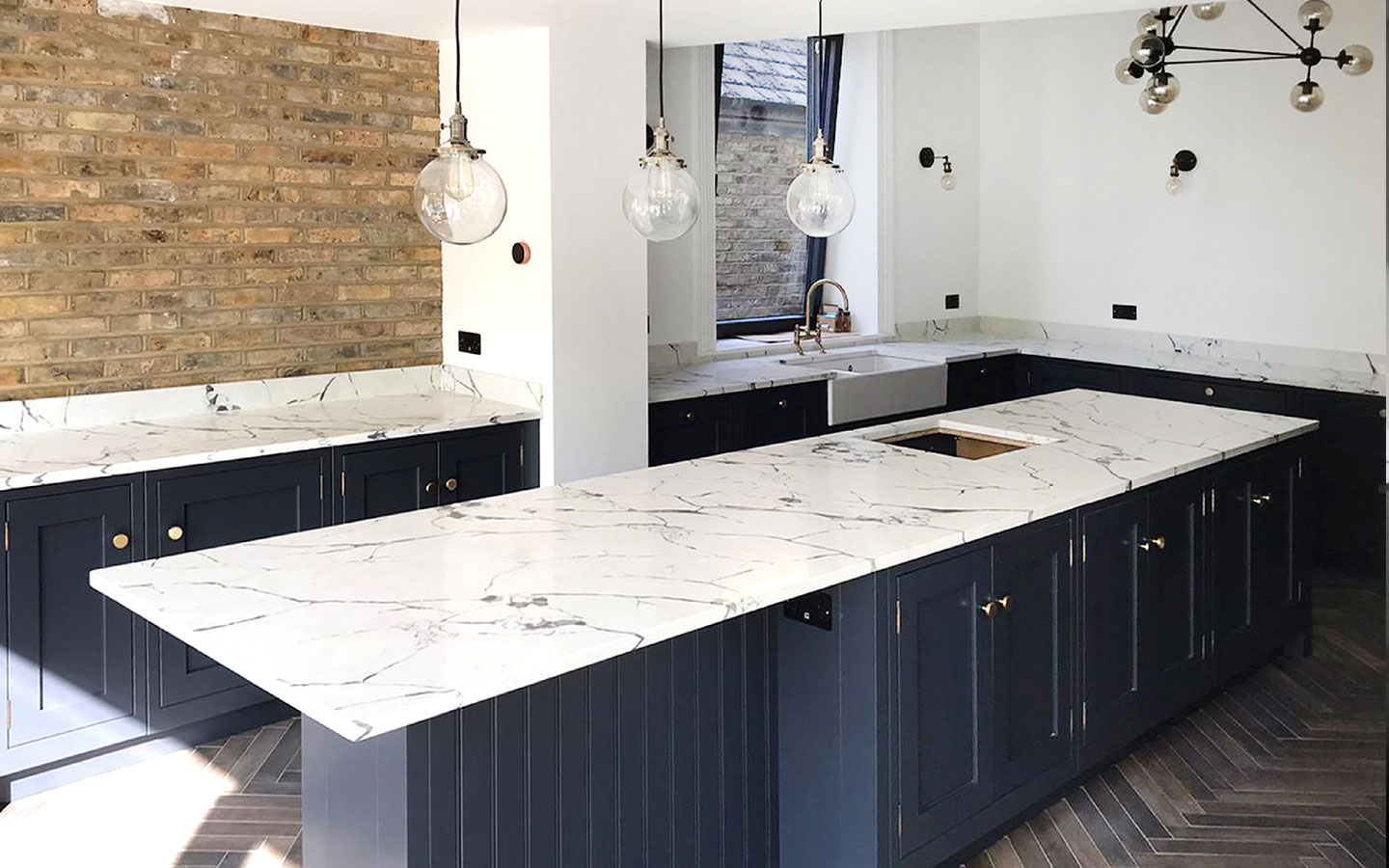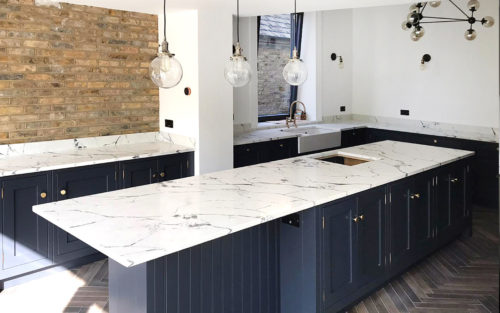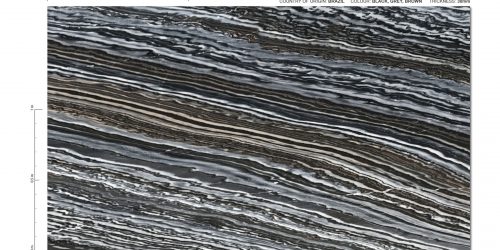When you are choosing a material for a kitchen worktop there are many things that need to be taken into consideration. Not only do your kitchen worktops need to be practical, but they also need to be functional as well. Different materials have different advantages and disadvantages, but many people today are opting for natural stone for their kitchen worktops.
When you use natural stone for a worktop, it is environmentally friendly apart from anything else. A lot of engineered stone worktops, and laminates, and so on, involve manufacturing processes which often include toxic chemicals and harsh emissions into the atmosphere.
One of the most popular natural stones that we supply at Marble & Granite is, indeed, granite, and it is a sustainable product. A single granite quarry can produce stone for thousands upon thousands of projects both residential and commercial and can go on for several centuries. The granite is quarried in its’ natural state and is simply sliced into slabs for use as worktops or for any other project. Once this has been done, there is minimal preparation other than to cut and polish the slab to fit your kitchen work surfaces.
One of the big advantages of granite is that, as a natural stone, every slab is unique. It also comes in a wide range of colours and can have veining and patterning in it. Many exotic granites have huge flowing waves in them as well. It is always a good idea to choose the actual slabs that are going to be used in your kitchen worktops so that you can allow for patterning and where the slabs join together.
A typical kitchen will require two or three slabs to cover all the work surface area. The average slab size can vary, depending upon the colour of the granite, and a typical slab size is around 9 feet by 5 feet. This means that an island can often be done without any seams, but if you have an L-shape layout there will be a seam where the angles are. This can usually be filled with a matching-coloured epoxy resin at the join which can often make it seem to disappear.
Granite worktops in Hertford are extremely hard, measuring a 7 on the Moh’s scales of hardness. That means that you are unlikely to scratch it even if you cut foods on it, but this is not recommended. You should always use a chopping board because you are likely to damage your knife blade if you don’t. You may also leave a metal residue on the surface which can be difficult to remove.
Granite worktops are also heat resistant. In fact, they are one of the most heat resistant worktop materials that you can find. You can actually put hot pans on it without damage, although experts do recommend the use of a trivet when using things such as a crockpot which can emit heat for a long time.
Even though it is extremely tough, granite is a porous stone and that means that if you spill things on it and leave them, they can soak in. This means that they will need sealing, although it has to be said that the darker granites are very dense and may not even need a sealant. The lighter colours are more porous and will definitely need to be sealed. It is also easy to fit an undermount sink into a granite worktop which means that spills and crumbs can just be wiped into the sink.
It is very rare for a granite worktop to suffer a crack or chip, but if it does it needs to be repaired by a professional. Often this can be done by using a colour-matched epoxy resin which will leave the damage almost invisible. You do need to be careful when using heavy cast-iron pans especially when putting them in an undermounted sink as the edge of these is the most common place to get a chip.
Provided the worktop is sealed, there is virtually no maintenance required. Just a damp cloth and possibly a little washing up liquid will get rid of almost everything. As for re-sealing, many sealers today will last for ten years or more, so when the time comes it is a simple matter to apply a coat of sealant and wipe off the excess and leave it to dry.



